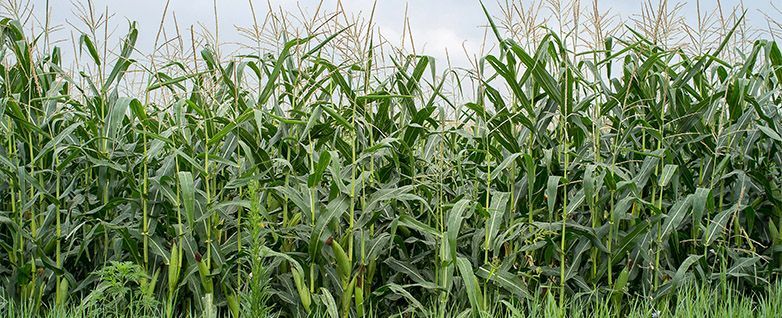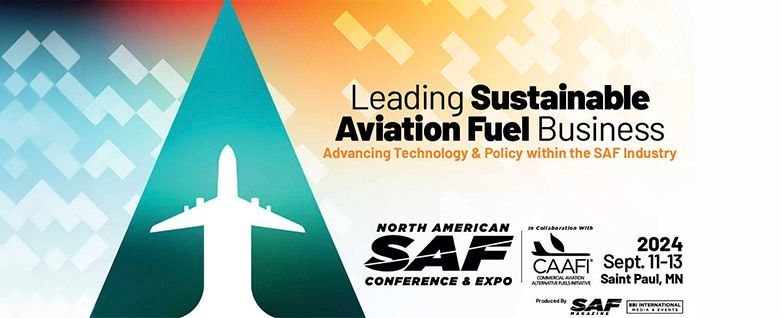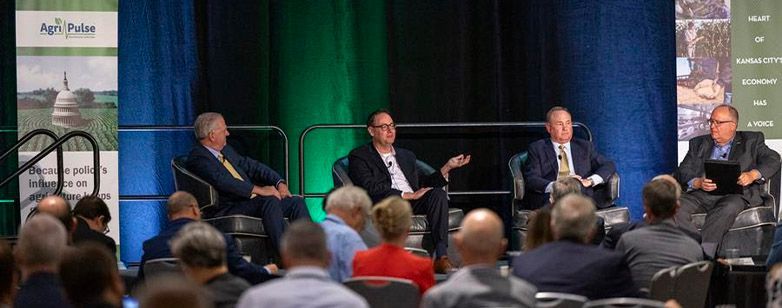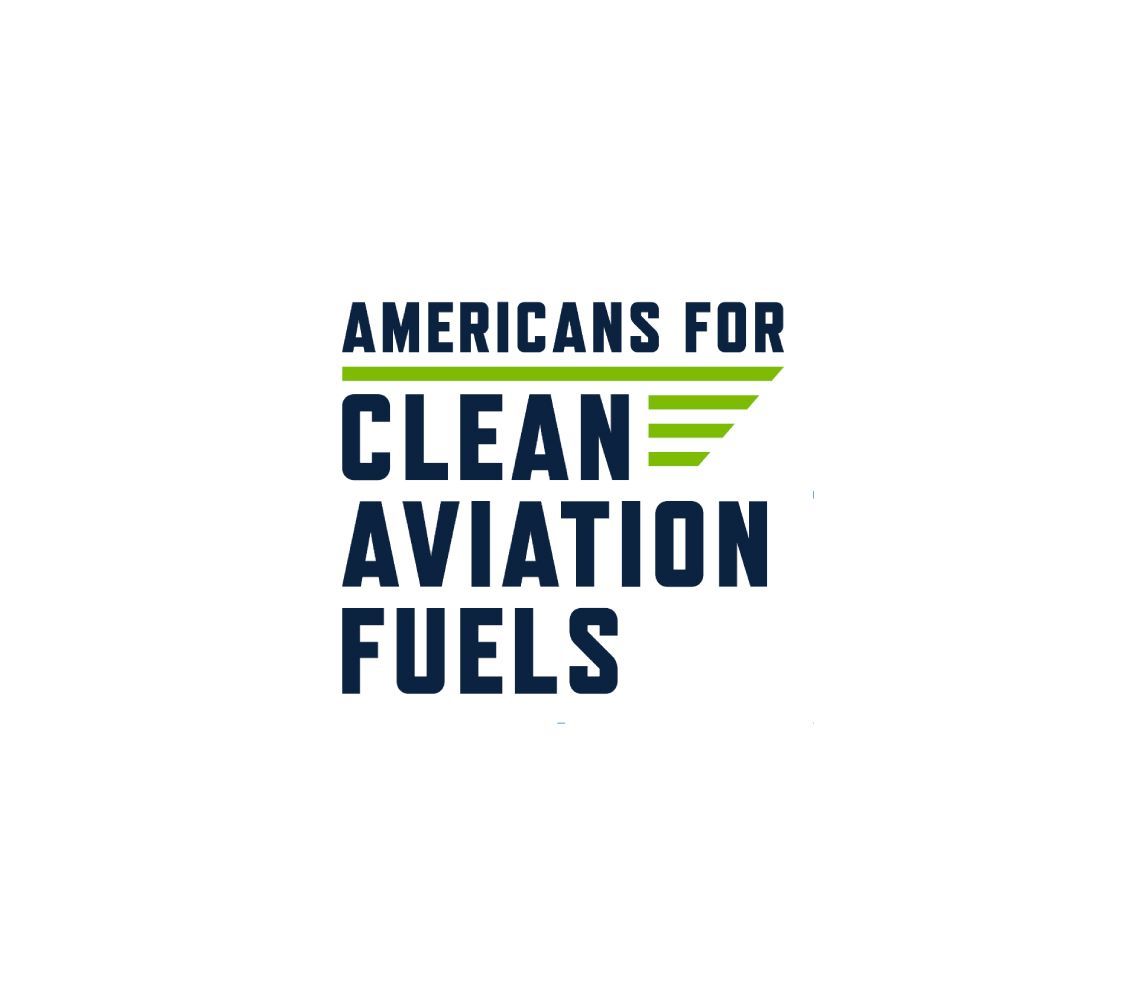FORMER SENATE AG CHAIRMAN: “SAF’S SUCCESS DEPENDS ON CROSS-SECTOR COLLABORATION”
former senator pat roberts (R-KS) Highlights Establishing U.S. energy leadership through smart policy and sound regulation in agri-pulse
In Case You Missed It — Former Chairman of the Senate and House Agriculture Committees Pat Roberts (R-KS) authored an op-ed forAgri-Pulse detailing how sustainable aviation fuel (SAF) will help fulfill the energy dominance agenda set by President Trump, lift up farmers in the Corn Belt and boost our economy. Roberts, who served in Congress for 40 years, explained commonsense policy and across-industry alignment will be key to getting SAF off the ground.
“As President Trump implements his America First agenda, he is rightfully prioritizing robust energy production as a national priority. Instead of depending on unreliable foreign energy sources,” Roberts writes, “the President is correct that the United States should produce more homegrown energy to meet domestic and global demand. In the President’s quest for national energy dominance, growing domestic production of clean aviation fuels (CAFs) – including sustainable aviation fuel (SAF) – must be part of the national conversation.”
Roberts serves as a policy advisor
to
Americans for Clean Aviation Fuels – a national coalition committed to growing the CAF market in alignment with America’s largest industries, including farmers, airlines and energy producers. To reach a fully realized CAF market, the industry needs the support of policies that foster growth for the entire value chain, from farmers and producers to airlines. A fully scaled CAF market would stimulate the nation’s economy by engaging the whole of the supply chain, creating jobs and making America more energy independent. ACAF seeks to do all that using biofuels or synthetic fuels derived from renewable biomass feedstocks, waste resources, and renewable energy, as well as captured carbon and hydrogen to provide a cleaner alternative to using conventional jet fuel.
SAF’s success depends on cross-sector collaboration
By: Pat Roberts
Agri-Pulse
March 14, 2025
As President Trump implements his America First agenda, he is rightfully prioritizing robust energy production as a national priority. Instead of depending on unreliable foreign energy sources, the President is correct that the United States should produce more homegrown energy to meet domestic and global demand.
In the President’s quest for national energy dominance, growing domestic production of clean aviation fuels (CAFs) – including sustainable aviation fuel (SAF) – must be part of the national conversation. CAFs have strong support from a broad range of disparate sectors, including farmers, agribusiness, manufacturing, aviation, and oil and gas.
Farmers in Midwestern states – which President Trump won by a wide margin – are particularly bullish about boosting American SAF production. Think of SAF as an airplane’s version of E15 gasoline fuel blend. It’s a renewable alternative to conventional jet fuel that benefits multiple segments of the economy, including farmers, oil and gas producers, and end users.
Growing American SAF production has the potential to strengthen multiple industries. That includes creating a whopping 400,000 American jobs and adding $78 billion to our nation’s economy within the next 10 years.
The Trump Administration is now considering the path forward for the Clean Fuel Production Credit (45Z). As this process advances, hardworking American farmers support a commonsense regulatory framework that will enable a coalition of industry partners, such as those in the agriculture, energy, transportation and manufacturing sectors, to successfully expand American SAF production.
Once regulatory certainty comes into focus, it will be paramount for industries to work together to scale this promising market. Inevitably, as with any cross-sector endeavor, trade-offs in policy priorities will be needed to jumpstart SAF production. All parties in the value chain must seek common ground and a common purpose to boost domestic SAF production.
My home state of Kansas, an agricultural powerhouse, provides a snapshot of the areas in which individual industries will need to come together to seize the promise of the SAF opportunity. Kansas is already a national aviation leader, supporting thousands of jobs through general aviation and aircraft production. But while the aviation industry has generally preferred the SAF blenders tax credit, finding a way to maximize SAF within the contours of the clean fuel production credit may become necessary.
Simultaneously, oil and gas companies represent another significant segment of Kansas’ economy. These firms have traditionally favored policy allowances for fuel co-processing. Centered in the heartland of America, we are all too familiar with biofuel producers and oil and gas companies’ co-processing tug of war, representing separate sides of a seemingly endless policy debate that must be resolved to secure SAF’s promise.
Ultimately, our economy is strengthened when industries work together. This doesn’t mean every industry is going to win every single policy argument. But it does mean that dialogue and mutual cooperation will be necessary for American SAF production to take flight.
My home state of Kansas is just one of the many agricultural states that will benefit from growing America’s SAF market. Leaders in the SAF value chain must keep sight of the tremendous opportunities for rural job creation and economic activity – as well as national energy security – that building the SAF market represents.
Whether you’re from Kansas, Iowa, Texas or somewhere in between, no single issue is worth derailing an industry that will positively impact heartland communities. From my time representing farmers in Congress, I know good policy and good ideas when I see them. To reap the full benefits of SAF to our economy and to individual industries, sectors will have to work together in a spirit of collaboration – supported by a smart regulatory approach that advances national energy dominance objectives.
Former U.S. Sen. Pat Roberts, R-Kansas, served as chairman of the Senate Agriculture and Intelligence committees. He serves as a policy advisor to the Americans for Clean Aviation Fuels coalition.
Media Contact:
Mickey Sundermann
mickey@rokksolutions.com
About Americans for Clean Aviation Fuels (ACAF)
ACAF is a dynamic coalition of industry leaders from the aviation, manufacturers, energy, and agriculture sectors, united in their mission to advance the production and adoption of clean aviation fuels. Committed to driving economic growth, reducing emissions, and bolstering national security, ACAF represents a pivotal force in propelling sustainable aviation practices in the U.S. while creating good-paying jobs. For more information about ACAF and to see a list of founding members, please visit www.americansforcleanaviationfuels.com







